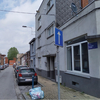Mapping the Colonial Past in the Public Space. A Comparison between Belgium and the Netherlands
DOI:
https://doi.org/10.18352/bmgn-lchr.10783Abstract
Both in Belgium and the Netherlands, the colonial past is currently fiercely debated. This review article discusses recent publications on colonial heritage in the public space in the two countries: an academic monograph on Belgian postcolonial memory written by Matthew G. Stanard, a Belgian walking guide authored by Lucas Catherine, and a series of Dutch slavery heritage guides set up by interdisciplinary authors’ collectives. This review article also reflects on the different ways in which Belgium and the Netherlands deal with their colonial past. The decolonisation of the Belgian public space has recently shifted into a higher gear: in 2018, the first prime minister of Congo, Patrice Lumumba, was honoured in two street names for the first time, and in 2019 two cities decided to re-baptise their Leopold II Avenues. Yet, Belgium lags behind the Netherlands in this matter. There, several monuments for heroes and victims from the former colonies have been established and a handful of slavery heritage guides have been published. These guides uncover a past that deliberately had been silenced and assist diaspora groups in creating a memory, by marking significant sites and making slavery legacy visible. Several elements, both from the past and the present, can account for this gap between Belgium and the Netherlands.
Zowel in België als in Nederland is het koloniaal verleden het voorwerp van hevige debatten. Dit recensie-artikel bespreekt recente publicaties over koloniaal erfgoed in de publieke ruimte van beide landen: een academische monografie van Matthew G. Stanard over Belgische postkoloniale herinneringen, een Belgische wandelgids geschreven door Lucas Catherine, en een reeks van Nederlandse gidsen rond slavernij-erfgoed die zijn opgesteld door interdisciplinaire auteurscollectieven. Het artikel staat ook stil bij de verschillende manieren waarop België en Nederland omgaan met hun koloniaal verleden. De dekolonisatie van de Belgische openbare ruimte is recent in een stroomversnelling geraakt. In 2018 werd de eerste Congolese premier Patrice Lumumba voor het eerst geëerd met twee straatnamen en in 2019 hebben twee steden besloten om hun Leopold II-lanen te herzien. Toch ligt België op dit punt achter op Nederland. Daar zijn verscheidene monumenten opgericht voor helden en slachtoffers uit de voormalige kolonies, en werd recent een handvol wandelgidsen rond slavernijverleden gepubliceerd. Deze gidsen leggen een verleden bloot dat voordien bewust was toegedekt en staan migrantengroepen bij om een geheugen te vormen door belangrijke openbare plekken aan te duiden en de erfenis van de slavernij zichtbaar te maken. Verschillende elementen, zowel in het verleden als in het heden, verklaren deze kloof tussen België en Nederland.
België lijkt komaf te willen maken met zijn koloniaal erfgoed in de openbare ruimte. In 2018 vernoemden Charleroi en Brussel als eerste Belgische steden een straat en een plein naar de eerste Congolese premier Patrice Lumumba. Een jaar later besloten Dendermonde en Kortrijk om de Leopold II-laan in hun stad een andere naam te geven. Ook in Nederland verhit de dekolonisatie van de publieke ruimte regelmatig de gemoederen. In een recensie-artikel van recente boeken over koloniaal erfgoed in België en Nederland, verschenen in BMGN – Low Countries Historical Review (135-1), vergelijkt Idesbald Goddeeris (KU Leuven) de huidige aanpak van beide landen. Hij legt opvallende verschillen bloot. In België wordt er vaker voor gekozen om bestaande koloniale standbeelden te behouden en ze te voorzien van extra informatieborden. In Nederland zien echter meer nieuwe monumenten en straatnamen het licht waarin antikoloniale verzetshelden en slachtoffers van de slavernij worden gehuldigd. En hoewel er in beide landen wandelgidsen over koloniaal erfgoed verschenen zijn, tonen de Nederlandse boekjes aan dat de mentale dekolonisatie daar breder gedragen wordt dan in België.
Downloads

Published
Issue
Section
License
Authors who publish with this journal agree to the following terms:
a) Authors retain copyright and grant the journal right of first publication with the work simultaneously licensed under a Creative Commons Attribution 4.0 International (CC BY 4.0) that allows others to share the work with an acknowledgement of the work's authorship and initial publication in this journal.
b) Authors are able to enter into separate, additional contractual arrangements for the non-exclusive distribution of the journal's published version of the work (e.g., post it to an institutional repository or publish it in a book), with an acknowledgement of its initial publication in this journal.
c) Authors are permitted to post their work online (e.g., in institutional repositories or on their website) prior to and during the submission process.
Authors are explicitly encouraged to deposit their published article in their institutional repository.








